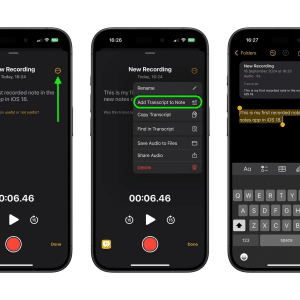
When a tech consultant showed off her Google Glass the other night at the Haight Street bar Molotov’s, the result was explosive — and reflected a growing debate over whether the cutting-edge device that mounts a computer and camera on a wearer’s face goes too far and breaks the social compact.
The reported attack on Sarah Slocum, who said she had the eyewear ripped from her face before she was robbed of other belongings, had the Internet buzzing after The Chronicle first reported it this week.
Police said it appeared to be the first incident of violence in San Francisco over Google Glass, which hasn’t been released to the public. Still, it has raised questions over whether some breakthroughs in technology, while impressive and convenient, might be rejected by a society anxious about lost privacy and a collective absorption in personal gadgetry.
Users of Google Glass, who now include only a select group of product testers, have encountered not only wonder when they go out in public but also occasional friction — if not outright restrictions on wearing the device in restaurants and cafes, as well as casinos and movie theaters.
“It makes people very uncomfortable,” said Ken Goldberg, a professor of engineering at UC Berkeley and head of the school’s Art, Technology and Culture lecture series. “While people are OK with cell phones and cameras, when you place that device on the eyes, you’ve changed the equation.”
Goldberg said the public is likely to become more accepting of the new technology as it becomes more widespread. But that could take time.
Unfriendly Reaction
The latest run-in involved Slocum, 34, a local tech writer and marketing consultant who said she was taunted after giving others a peek at her eyewear early Saturday at Molotov’s in the Lower Haight. According to a police report and witness accounts, Slocum and a male friend were approached by a small group of people who didn’t appear to take a liking to her paraphernalia.
“They started rolling their eyes at me and they tried to shield themselves from the Glass because they thought it was recording them, which it wasn’t,” Slocum told The Chronicle in an interview Tuesday. “Out of the blue, one of the girls turned around and completely flipped me off. At that point, I was like, ‘Holy crap, I’m the target of their anger and hatred.’ ”
Slocum said that while she was not recording footage initially, she turned on the camera after she felt threatened.
She said a young man — whom police officials described as 5-foot-10 and 160 pounds with a short beard and a gray plaid hat — then ripped the Google Glass off her face and ran out of the bar. Slocum pursued the man, she said, who eventually relinquished her glasses. But when she returned, others had taken her purse, phone and wallet.
Slocum said the group’s ill will appeared to have gone beyond concern over the camera feature of the glasses to issues with the tech community as a whole. She said one of her assailants told her, “You guys are killing the city.”
 Image Credit: Telegraph.com.uk
Image Credit: Telegraph.com.uk
—
Backlash Against Tech
Some in San Francisco see tech workers as narrow-minded and blame them for driving up housing costs and displacing lower-income residents. Such a view famously culminated in the “Google bus” blockades, where demonstrators surrounded private shuttles that transport tech employees in San Francisco to corporate campuses on the Peninsula and in the South Bay.
Slocum said it was the first time she has encountered a problem since she started wearing Google Glass a month ago. Mostly, she said, people are curious and want to learn more about the gadget.
In the past, the biggest problems reported by Bay Area Glass wearers have been occasional bans in coffee shops. Across the country, Glass users have reported being asked to remove the eyewear in casinos and movie theaters for fear that they’ll make illegal recordings.
Driving with the device is also shaping up as a battleground. In San Diego, a woman was cited for wearing Google Glass while driving, though a judge later tossed the ticket because there was no evidence the computer was turned on. Google is reportedly seeking to prevent laws against driving with the device.
Tom Madonna, the owner and bartender at Shotwell’s in the Mission District — where tech workers are ubiquitous and Google Glass is an occasional guest — said he doesn’t ban the eyewear. But he added that he and even many tech workers frown on wearing it in the watering hole.
“If you’re old enough to be in a bar, you should be old enough to have conversation with other adults,” Madonna said. “When you’re in a bar with Google Glass, it’s like saying, ‘I’m only halfway here. I’ll be checking my phone.’ ”
Don’t Be a ‘Glasshole’
Anticipating problems with the technology, Google launched a public relations campaign to better assimilate the gadget. The Mountain View company is holding nationwide forums for people to try the product, and this month even released an etiquette guide for its beta-testers — so they don’t become “glassholes.”
The guide advises its “explorers” not to “glass out” or zone out with the device and to avoid being “creepy,” standing in the corner and blatantly recording people.
“New technology raises new concerns, and the Glass team is sensitive to those concerns,” Google Glass spokeswoman Anna Richardson White said in an interview Tuesday.
White had heard of the incident on Haight Street through news reports but wasn’t prepared to comment on it.
More than 10,000 people are currently testing the device, Richardson White said. The product, which most users bought for about $1,500, is expected to be available to the public this year.
Heading Off Problems
Google isn’t the only company trying to overcome the hurdles of wearable technology. Several other businesses have released or are working on gadgets that can be worn on different parts of the body — the leg, the neck, the wrist. But many conceded the head will be the hardest to conquer.
“People just aren’t used to seeing a camera on somebody’s face,” said Eric Mizufuka, product manager of new markets for Epson, which released its own computerized eyewear in 2011. “I think people can see it as intrusive and potentially distracting.”
Epson has sought to introduce its product in settings where people might be more agreeable to it, such as museums, sporting events and certain workplaces.
“Over time,” Mizufuka said, “we’re going to get more comfortable with this type of tech.”
Chronicle staff writer Kale Williams contributed to this report. Kurtis Alexander is a San Francisco Chronicle staff writer.
San_Francisco_Ch












